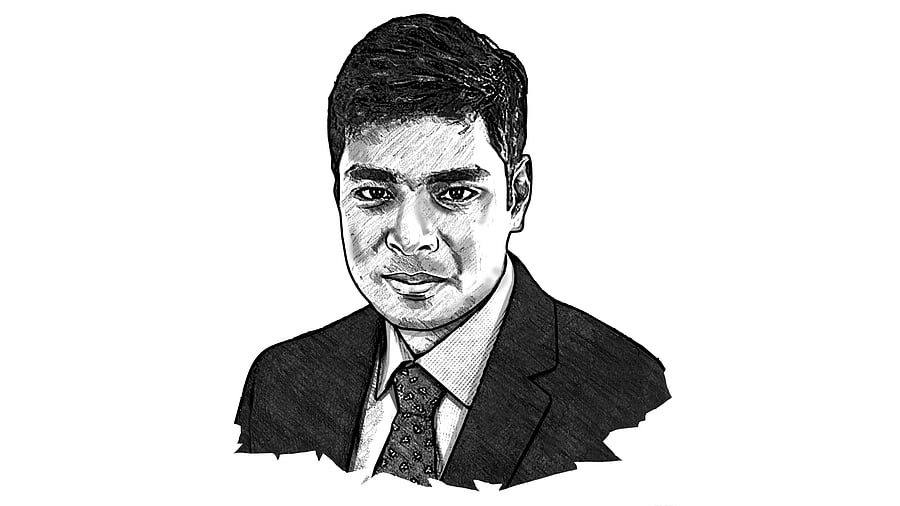
Mohamed Zeeshan is a student of all things global and, self-confessedly, master of none, notwithstanding his Columbia Master’s, a stint with the UN and with monarchs in the Middle East  @ZeeMohamed_
At the turn of this century, a wave of economic optimism and cultural exchange led to a proliferation of democracy around the world. With the fall of Soviet communism, these trends led some scholars to pronounce the “end of history” – countries, they argued, will no longer need to experiment with different ways of life because Western liberal democracy has won.
But in an age of chaos wrought by emerging technology – from social media to Artificial Intelligence – people are losing faith in their own selves as voters. In a 2023 survey by the Pew Research Centre, a median of 31% across 24 countries said that the rule by a strong leader or the military would be a good way to govern their countries. India clocked the highest support for authoritarianism at a startling 85%. Middle-income countries were seen as favouring authoritarianism more than high-income countries (the US reported 32% support, the UK 37%, and Germany 17%). Strikingly, people with lower incomes were found to be more supportive of authoritarian rule than wealthier individuals.
Ironically, driven by this widespread scepticism among voters, democracy itself has facilitated a global decline in democracy. Following the election of a wave of anti-establishment populists around the world, indices have been registering steady declines in the quality of liberal democracy across countries.
In 2024, the Economist Intelligence Unit (EIU)’s Democracy Index fell to an all-time low. The EIU Index stood at 5.17 (on a 0-10 scale); 130 countries of the 167 covered by the index either registered a decline in their score or made no improvement. Authoritarian rule covered 39.2% of the world population and 60 countries are now classified as authoritarian regimes – in 2014, the number was 52.
Why do voters love authoritarian leaders? In some countries, particularly in Asia, a part of the allure stems from the memory of strongmen leaders in China, South Korea, Taiwan, and Singapore who brought rapid growth to their countries from the 1980s to the 2000s, often outstripping their democratic peers.
But this phenomenon of strongman-fuelled growth occurred at a time when global leaders had bought into the idea that prosperity comes to those who trade and open up. As a result, although the masses had grown to distrust foreigners after years of colonial exploitation, leaders in each of those countries were able to use their low economic base and relatively costless labour to export goods to the rest of the world.
In the West, these trends had the opposite effect: As factories moved to Asia, labourers in those countries blamed democracy, which they felt had been co-opted by the educated elite who had shipped off their jobs abroad and then allowed in foreigners to compete with them. The solution: kick out the immigrants and throw out the imported goods.
Today, as the mood shifts towards scepticism and mistrust between countries, strongmen leaders are no longer encouraging trade or global business. Powered by voters who increasingly demand that they fight liberal institutions and ignore their laws, the new-age strongmen have taken their countries to war, imposed arbitrary policy changes, and begun conflicts over tribe and religion.
The result is stark. According to Morgan Stanley, in 2025, the global economy will see the slowest rate of growth since the pandemic. The World Bank warns that if current forecasts hold, this decade will see the slowest growth of any decade since the 1960s.
The problem here is uncertainty. With pandemics and natural disasters, people generally see light at the end of the tunnel: whether it takes a week, a month or even a year, the flood, the drought, and the disease will eventually end. But with unpredictability induced by these strongmen, no one knows when the chaos will end – if at all.
Frustration over lost jobs, growth, and economic opportunities could cause a reckoning one way or the other. If voters direct their anger at democratic institutions – and blame them for paralysing the strongman leader – they could double down on support for the leader. In that sense, despite failing to deliver any useful gains, the leader may only grow in popularity. But if voters see that fast-paced and chaotic governance is counterproductive, they may turn on the leader and restore normalcy.